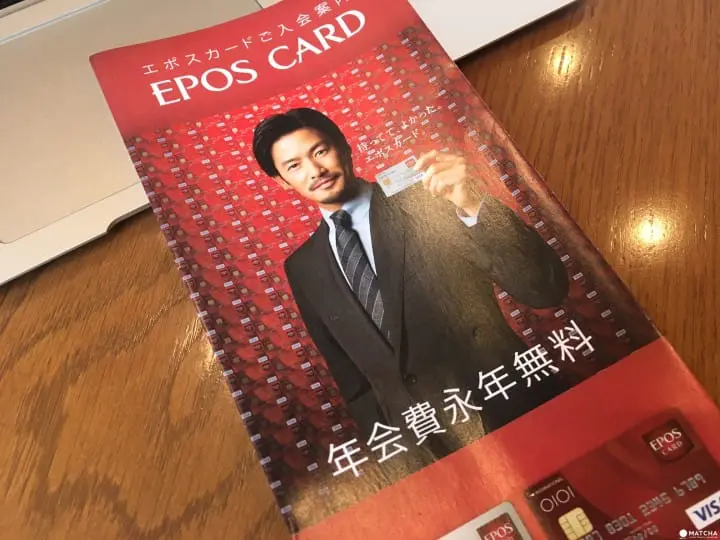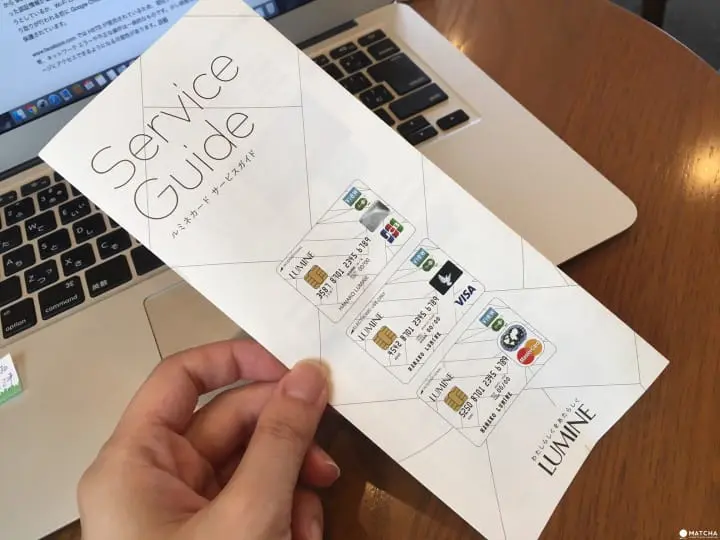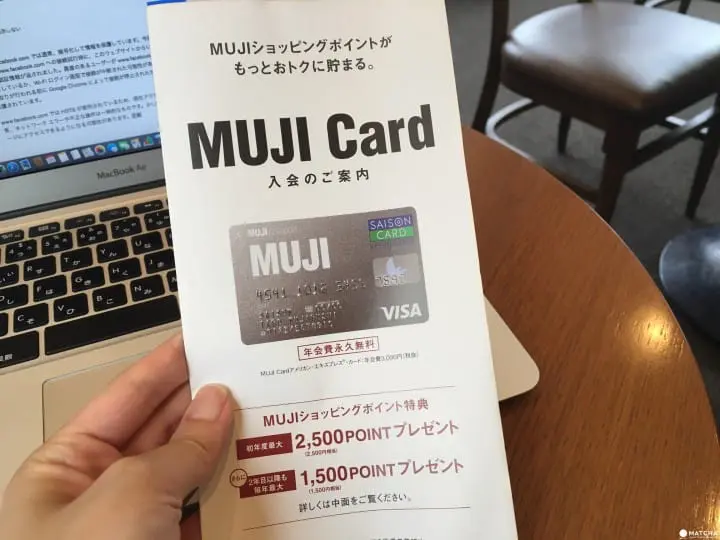Credit Cards in Japan: Complete Guide for Expats 2025

Having a Japanese credit card allows those staying long-term in Japan for work or study to save yen, get points and discounts, and build credit. In this article, we recommend Rakuten, EPOS, and other foreigner-friendly credit cards that are easy to apply for while offering nice perks.
How to Get a Credit Card in Japan - Guide for Foreign Residents
There are four cards that are essential for living in Japan: your residence card, your health insurance card, an ATM card, and the credit card.
Debit cards allow for cashless payment, but it is important to own a credit card, no matter where you live. Credit cards allow you to make large purchases and earn points with various services such as airlines. They help you save money in the long run.
In this article, we introduce credit cards that are easy to apply for, have foreign language support and are thus recommended for international residents. The Rakuten credit card is particularly easy to use and offers many benefits. We also introduce the Epos and Lumine cards and how to apply for them.
What Do I Need to Apply for a Credit Card in Japan?
To apply for your credit card, you must bring your passport, a form of identification with a photo (like your driver's license), your residence card, health insurance card, and the ATM/debit card you wish to withdraw from. Please keep in mind, though, that the documents you need will vary depending on the credit card company you are applying for.
If you apply online, you will usually have to provide more detailed information. You may have to answer questions about your income, how long you have lived in your current place of residence, and the number of employees and amount of capital of the company you work for.
Recommended Credit Cards for Foreign Residents
| Card Name | Membership Fee | Point Rate |
| Rakuten Card | Free | 1% |
| EPOS Card | Free | 0.5% |
| LUMINE Card | 1st year free, 1,048 yen (with tax) after | 0.2% |
| MUJI Card | Free | around 0.1% |
| JAL Card | 1st year free, 2,200 yen (with tax) after | 2% |
In Japan, credit cards are issued by banks, credit card firms like Credit Saison, and large holding companies such as Marui and Epos.
There are many choices of credit cards, but the ones listed above are easy for foreigners living in Japan to apply for and to get approved. The table above summarizes the annual fees and rewards rates.
In general, credit cards issued by banks are subject to strict screening; it is considered difficult for those who have been in Japan for less than one or two years to get approved. By obtaining one of the credit cards introduced in this article and by making proper payments, you will build up your credit history. After doing this, it will be easier to get approved for a bank card.
If you are in Japan for a short duration, like study abroad or a working holiday, if you have just arrived in Japan, or have never owned a credit card, we recommend you to apply for the following cards.
1. Rakuten Card

Rakuten Card is a card issued by the Rakuten Group, the company behind Rakuten auctions and many other Internet-related services.
The annual limit is 1,000,000 yen, and there is no annual fee. Credit card owners will earn one point for every 100 yen spent (one point is equivalent to one yen). When you use your Rakuten Card to make purchases through Rakuten, you can earn up to three times as many points.
If you use this card to pay for overseas travel and airport transportation, you will be guaranteed up to 20 million yen in travel insurance.
See Details and Apply for Rakuten Card (Japanese)
2. EPOS Card

EPOS Card is issued by a subsidiary of the Marui Group, which operates large shopping malls throughout Japan. If you apply for the card in-store at a Marui department store and pass the screening process on the same day, you can receive your card immediately. You will also get a coupon worth 2,000 yen upon signing up.
There is no annual fee for the EPOS card. When you use this card at VISA merchants, you'll get 1 point for every 200 yen you spend. Four times a year, members will receive a 10% discount on purchases at Marui stores nationwide, making this card ideal for anyone who likes to shop.
Details and Apply for EPOS Card (Japanese)
3. LUMINE Card

The LUMINE Card is a credit card offered by the company that owns LUMINE shopping complexes often attached to major train stations in Japan such as Shinjuku.
The first year of membership is free; starting the second year, you will have to pay a 1,048 yen (includes tax) annual fee. In collaboration with JR East, the LUMINE card can also be used as a Suica IC card or as your commuter pass.
In addition to LUMINE, when you shop at JR East affiliated stores, you can earn one JRE point per every 100 yen you spend. These points can be exchanged for LUMINE gift cards and other rewards. Domestic travel insurance up to 10 million yen and international travel insurance up to 5 million yen is also included with this card.
Cardholders can enjoy 10% off for all LUMINE products. These sales are held four times a year, making this another good option for those planning on shopping.
See Details and Apply for LUMINE Card (Japanese)
4. MUJI Card

The MUJI Card is a credit card issued by Credit Saison in affiliation with the retail and lifestyle company MUJI. When you join, you get 1,000 yen worth of shopping points to use at MUJI stores. You can also earn up to 2,500 points during your first year membership and up to 1,500 second year.
There is no annual membership fee for the MUJI card. You can earn one point for every 1,000 yen you spend on everyday shopping, and three for every 1,000 yen you spend at MUJI retailers. Following the month of your birthday, you will receive 500 points. One point is worth one yen.
In addition, during MUJI Week, a sale held several times a year, all items at MUJI stores are 10% off for cardholders. This is the ideal card for those who love shopping and the MUJI brand.
See Details and Apply for MUJI Card (Japanese)
5. JAL Card
The JAL Card, issued by the JAL Group, is a credit card recommended for those who fly frequently for business or travel.
There is no annual fee for the first year. Starting the second year, credit cardholders will pay a 2,200 yen (including tax) annual fee. For every 200 yen you spend on shopping with this card, you will accumulate one mile, and you can redeem these miles for airline tickets and other benefits. For example, you can redeem your points for a one-way ticket within Japan with 6,000 miles or more, or for a round-trip ticket with 12,000 miles or more (the number of miles required depends on your distance).
Cardholders will receive 1,000 miles on their first flight with JAL, and 1,000 miles on your first flight every year thereafter.
See Details and Apply for JAL Card (Japanese)
FAQ
How to get a credit card as a foreigner in Japan?
Obtaining a credit card as a foreigner in Japan can be challenging due to stringent requirements set by Japanese banks. Generally, applicants need a long-term visa, proof of residency with a valid residence card (Zairyu card), a stable income meeting minimum requirements, and potentially a level of Japanese proficiency. Having a job in Japan and establishing a positive relationship with a bank can also enhance the chances of approval. Some banks offer specialized credit cards for non-Japanese residents, so researching these options and seeking assistance from a local fluent in Japanese can help navigate the application process more effectively. It's advisable to contact banks directly to understand their specific criteria and policies for issuing credit cards to foreign residents.
Is it difficult to get a credit card in Japan?
Obtaining a credit card in Japan can be challenging, especially for foreigners, due to strict requirements set by Japanese banks. Factors that might make it difficult include the need for a long-term visa and proof of residency, a stable income meeting minimum thresholds, potential Japanese language proficiency expectations, and a credit history in Japan. Without a credit history in the country, approval can be particularly challenging for newcomers. While some banks may offer credit cards designed for non-Japanese residents, navigating the application process can still pose obstacles for those unfamiliar with the system. Establishing a good relationship with a bank, meeting their criteria, and seeking assistance from local experts or resources can enhance the chances of successfully obtaining a credit card in Japan.
Can foreigners get a Rakuten credit card?
Foreigners are eligible to apply for a Rakuten credit card in Japan. While Rakuten Bank, like many other financial institutions in Japan, may have specific requirements for non-Japanese applicants, having a valid residence status, proof of income, and meeting their credit criteria are essential for approval. Rakuten offers various credit card options with different benefits and features, catering to a wide range of consumer needs. It's advisable for foreigners interested in getting a Rakuten credit card to contact Rakuten Bank directly or visit their website to review the application process and specific requirements for non-Japanese applicants.
Can foreigners get a credit card?
Foreigners can typically get a credit card in most countries, including Japan, but the process and requirements can vary. In Japan, while it is possible for foreigners to obtain a credit card, there are certain challenges and criteria they may need to meet. These typically include having a valid residence status, proof of income, a good credit history (which can be challenging for newcomers), and in some cases, a level of proficiency in the Japanese language. Certain credit card issuers may have specialized cards designed for non-Japanese residents, offering more accessible options. It's essential for foreigners interested in getting a credit card to research the specific requirements of different banks and financial institutions to increase their chances of approval.
Does 7-Eleven Japan take credit card?
Yes, 7-Eleven stores in Japan typically accept credit cards as a form of payment. Major credit cards such as Visa, Mastercard, American Express, and JCB are commonly accepted at most 7-Eleven locations throughout Japan. This makes it convenient for customers, including tourists and foreign visitors, to use their credit cards for purchases at 7-Eleven stores for a variety of products and services. However, it's always a good idea to have cash on hand as well, especially for smaller purchases or in case of any unexpected issues with card payments.
Does your credit score matter in Japan?
In Japan, having a credit score is less common compared to countries like the United States. Instead of a centralized credit scoring system like FICO in the U.S., financial institutions in Japan generally rely on individual credit histories with their specific lenders when determining loan approvals. While a credit history and credit score can influence your ability to secure loans or credit cards in Japan, it is not as standardized or widely used as in some other countries. As a foreigner in Japan, building a positive credit history with local banks and financial institutions over time can increase your chances of being approved for loans or credit facilities. Each financial institution in Japan may have its own criteria for assessing creditworthiness, so having a good relationship with a particular bank and demonstrating responsible financial behavior are key factors in accessing credit in Japan.
Is Visa or Mastercard better in Japan?
Both Visa and Mastercard are widely accepted in Japan, offering similar levels of convenience for payments at various establishments. When choosing between the two, personal preferences and individual bank offerings play a significant role. Consider factors like the specific benefits and rewards provided by the issuing bank, as well as any associated fees for international transactions if you plan to travel. Both networks offer comparable features, so it's essential to research the terms and conditions of the specific cards provided by banks in Japan to align with your needs effectively. Ultimately, the decision between Visa and Mastercard in Japan hinges on your preferences, travel plans, and the specific attributes of the cards offered by the issuing institutions.
Spend Smart with a Japanese Credit Card
Credit cards in Japan offer a lot of benefits when shopping, from discounts to airplane tickets. The credit cards listed above are especially recommended for international residents of Japan as they are easy to obtain and have convenient perks.
Open a credit card in Japan to enjoy shopping responsibly while building your credit.






































![[Niigata] Skiing and snowboarding are just not enough! Fun snow spots for parents and children](https://resources.matcha-jp.com/resize/720x2000/2026/01/29-256901.webp)


![[Gunma, Nakanojo] Experience Japanese history in a wooden school building from the Meiji era](https://resources.matcha-jp.com/resize/720x2000/2025/12/25-254022.webp)
